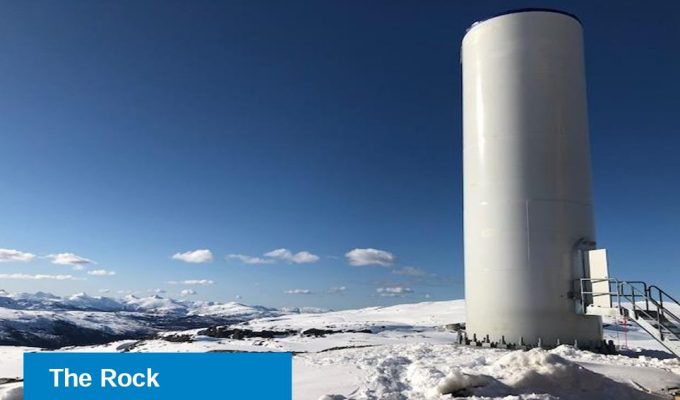Aquila European Renewables (AERI) has published its annual results for the year ended 31 December 2024, confirming a shift in strategic direction as shareholders approved a managed wind-down of the company in September. The shift in strategy follows continued market headwinds, underperformance across parts of the portfolio, and ongoing structural challenges within the listed renewables sector. The board has since appointed Rothschild & Co as financial adviser to oversee the wind-down process and explore potential asset sales.
Over the course of the year, AERI’s NAV per share fell from 98.5 €cents to 84.7 €cents, resulting in a NAV total return of -8.2%, including dividends. This followed a total return of -6.0% in 2023 and reflects continued downward pressure on electricity prices, particularly in the Nordic and Iberian markets. The company’s share price ended the year at €0.66, representing a discount to NAV of 22.1%, widening from 20.3% the previous year.
The primary drivers of the NAV decline were weaker near-term power price forecasts – linked to lower commodity prices, mild weather, and high gas storage levels – as well as lower prices for guarantees of origin (GoOs). Total portfolio revenue fell 11.6% year-on-year to €54.6m, with solar and wind revenues both down due to adverse weather conditions and grid curtailments. Electricity production came in 6.8% below budget, though hydropower performance remained strong, benefiting from favourable water availability.
Tesla wind farm sold
In terms of portfolio activity, the highlight was the September sale of AERI’s 25.9% stake in the 150MW Tesla wind farm in Norway for €27m. The disposal price represented a 10.8% premium to the asset’s 30 June 2024 valuation and allowed AERI to fully repay its revolving credit facility. As at year end, the facility remained undrawn, except for €2.8m in bank guarantees.
Dividends tied directly to earnings now AERI is in wind down
The board has updated its dividend policy in light of the new strategy. While the company paid total dividends of 5.1 €cents during the year (2023: 5.5 €cents), it no longer intends to provide forward guidance or smooth distributions over the year. Dividends will instead be tied directly to earnings and liquidity, and are expected to decline as assets are sold and gearing is reduced. Since its IPO in 2019, AERI has returned €116.5m to shareholders through dividends and buybacks, equivalent to 27.9% of total capital raised.
Portfolio maintained high technical availability
Operationally, the portfolio – spanning 12 assets and 424.9MW of capacity across wind, solar, and hydro – maintained high technical availability (97.3%) despite the weather challenges. The hydropower portfolio, in particular, exceeded expectations, helping to offset weaker output from solar and wind.
Asset sale process progressing
The board reiterated that the sale of complex renewable energy assets requires extensive preparation and that while it aims to return capital as quickly as possible, it must do so without compromising value. Asset-level due diligence is underway, and the company is refraining from commenting on individual sale processes to avoid prejudicing negotiations.
Despite near-term pressures, AERI says that it and its its investment adviser Aquila Capital maintain a constructive long-term view on the renewables sector, highlighting strong fundamentals driven by decarbonisation goals, electrification trends, and rising power demand from industrial activity and AI-driven data centres. However, given the company’s revised mandate, the focus will now remain firmly on maximising value from the existing portfolio and returning proceeds to shareholders efficiently.
The board has also undertaken a cost review to align the company’s operations with the wind-down strategy, including steps to reduce ongoing charges and streamline reporting obligations. Further updates will be provided as asset sales progress and decisions are made on how best to return capital.
Chairman Ian Nolan commented: “While 2024 has been a difficult year for the listed renewables sector as a whole, we are committed to completing the wind-down in an efficient manner, while preserving value for shareholders.”
[QD comment MR: The sale of the Tesla asset at a premium to carrying value underlines the validity of AERI’s NAV and is yet another illustration of why the hefty discounts that are prevailing with the renewable energy infrastructure sector do not make sense. It is regrettable, as this broader malaise has not just led to AERI throwing in the towel but has ultimately stopped a sector that was providing crucial funding for renewables from growing.
Regardless, the full repayment of the RCF is an encouraging early step and gives AERI breathing space to dispose of its remaining assets in a controlled fashion. With Rothschild now leading the disposal programme, much will hinge on execution – particularly on the prices achieved and how capital is ultimately returned. Investors will want to keep a close eye on how realisable the NAV proves to be, particularly in light of the sector-wide recalibration of asset values and market yields. The portfolio’s high contracted revenue base and stable operational performance may provide some insulation, but the board could face a delicate balancing act between speed and value realisation.]
